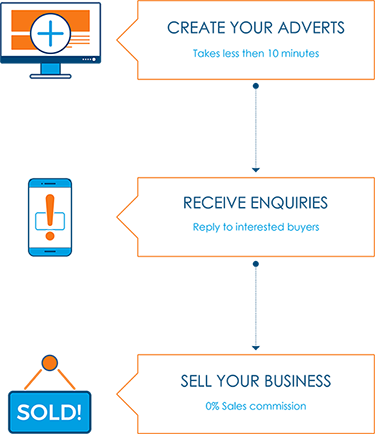
It may be surprising, but nevertheless true, that the vast majority of small business owners have little to no idea what their businesses are worth. This, of course, must be a significant weakness from both strategic and exit planning perspectives. However, how can they, as well as those who are currently considering the idea of selling, obtain realistic and reliable valuation advice?
There are no short cuts if the business valuation is to be worthwhile and credible. If not, the exercise will be a waste of time and business owners will end up making plans based on a false premise. So, how should businesses be valued and by whom?
The most appropriate and best source for business valuation advice is undoubtedly business transfer agents, but only those who are very experienced and who have proven and impressive track records of valuing and selling businesses like yours. Consequently, finding a specialist in your business sector with a wealth of knowledge and expertise is your first step. Such an agent should be able to conduct a confidential, discrete and thorough exercise to ensure that you receive the best possible advice. He or she will need to spend a few hours with you in order to fully understand your business in depth and detail. Although many businesses are similar to others in their field, all businesses are unique and so it is vital that the valuer collects not just the facts and figures, i.e. the quantitative information, but also what lies behind them – the qualitative information, e.g. how the business is operated, the management structure, the owner’s role, business plans, competition and so forth. This will provide the valuer with a fairly in-depth knowledge of the strengths and weaknesses of the subject business – key to the assessment as to its attractiveness, saleability and value.
The second phase of the valuation exercise is for the valuer to undertake comprehensive desk-top assessments. This involves the need to take into consideration not just the profitability of the business but also its fixed assets (such as premises, machinery, equipment, fixtures and fittings and vehicles) as well as intangible assets, where applicable, e.g. patents, intellectual property, contracts, etc. In addition, current assets (such as stock, work-in-progress, cash and debtors) also needs to be taken into account as do outstanding liabilities. The valuer will endeavour to draw conclusions as to overall value based on various criteria, using such measures as Abridged Net Profit attributable to a ‘Single Working Owner’ (given the fact that some businesses are owned and operated by more than one person and the valuer therefore needs to drill down to the lowest common denominator in order to be able to compare one business with another similar one on an equal footing from that perspective) to Investment Profit (to account for the level of profit which could be earned if the owner/s were to be replaced and the business operated fully under management) and to Return on Capital. This, of course, is where the valuer’s experience and knowledge comes fully into play. This exercise will likely produce a range of possible values, but almost certainly the realisable value will fall somewhere within this range.
Once the valuer has completed this work, he or she will then conduct some research to try to discover details in respect of sales of similar businesses which may have been sold in the preceding 12 months or so. This research is undertaken to try to obtain some ‘comparable evidence’ to enable the valuer to compare any factual evidence that it has been possible to unearth with the valuation range produced during the second phase of the overall process (as described above). This, of course, will likely help the valuer to narrow the range and come to some conclusions as to how the market is likely to perceive the value of the subject business. In other words he or she is trying to second-guess what someone might be prepared to pay for the business if it were offered for sale which, of course, would be the true acid test! However, this is clearly not a ‘wet finger in the air’ type of second guess – it’s clearly based on an educated and well researched exercise conducted by an experienced professional who is able to provide an independent and honest opinion. Why settle for anything less with such an important matter as this at stake!
For most people selling a business is a significant life event, so getting it right is essential.
Roger Mundy, Managing Director, Beardsley Theobalds www.beardsleytheobalds.co.uk – specialist business transfer agent.


